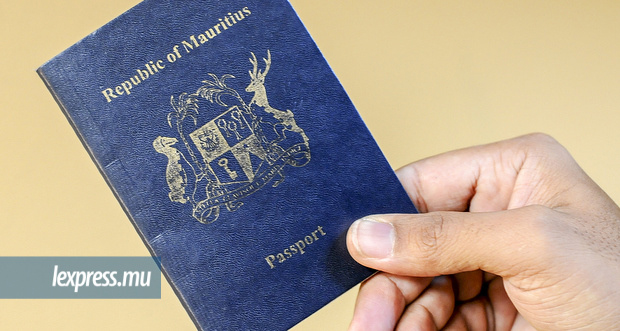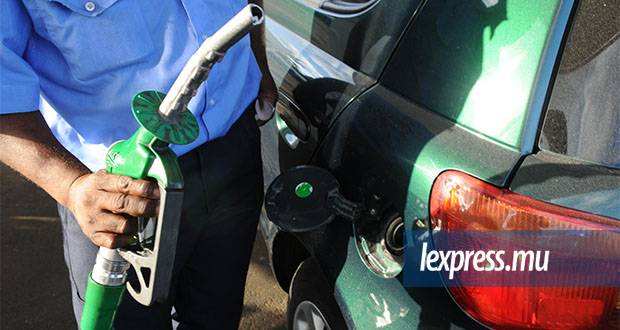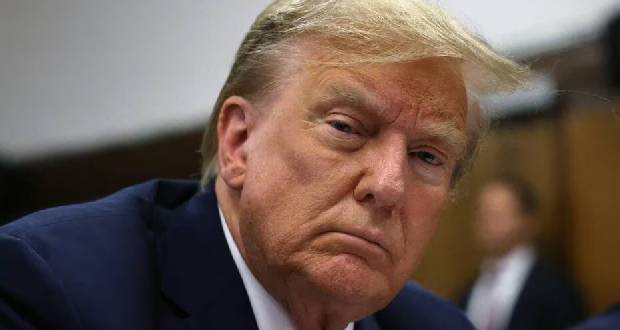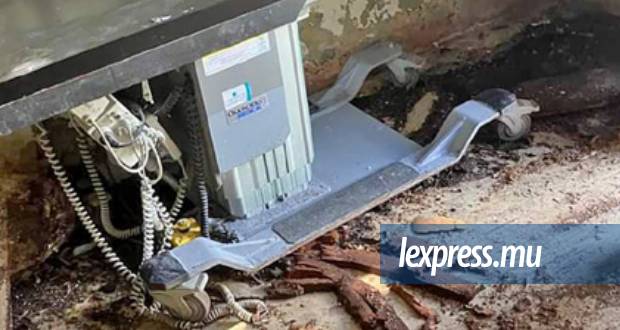Publicité
Budget 2018-2019: “No to the sale of Mauritian citizenship”
Par
Partager cet article
Budget 2018-2019: “No to the sale of Mauritian citizenship”


The announcement by the Prime Minister and Minister of Finance in his 2018-2019 Budget speech that Mauritian citizenship will now be for sale for US Dollars 1.0 million has shocked and outraged a large number of Mauritians of all classes. Even more outrageous is the stated objective of the scheme to sell citizenship to pay debt. It is felt in the mind of many citizens that this is akin to the prostitution of the country by way of selling its most treasured asset.
We are selling our land through real estate schemes. Mauritians are being deprived from enjoying large stretch of beach spaces. There is strong perception (sustained because of the refusal of government to come transparent about the whole matter) that we have sold some kind of rights of Agalega and now our citizenship. The uproar about and the opposition to the scheme is not only on moral grounds, but also on the practical implications that it may have.
More profoundly in the substance and the philosophy, this scheme introduces a most dangerous liaison between money and citizenship. Notwithstanding our internal differences, our divisions and contradictions, there is a strong sense of identity in our citizenship and pride as we all well know to claim our Mauritian identity when facing the outer world. To give this identity to a foreigner who has contributed nothing to the advancement of the country, but only by virtue of the size of his or her wallet degrades and outright corrupts the identity.
I fully concur with Ayelet Shachar* when she says that “citizenship as we know it is comprised of political relations; as such, it is expected to both reflect and generate a notion of participation, co-governance, and a degree of solidarity among those included within the body politic. It is difficult to imagine how these values could be preserved under circumstances in which insiders and outsiders are distinguished merely by the ability to pay a certain price”.
This is not earned citizenship. This is bought citizenship. It is a commercial transaction. It is payment for a commodity called citizenship like the rich can buy any other commodity. This decision is not making the Mauritian Citizenship a commodity.
Let no one argue that it is investment. This concept is semantically very much abused. The Board of Investment has for years wrongly called Foreign direct investment, the foreign exchanged paid by foreigners for the acquisition of real estate. Real investment is the committing of capital, time and human resources to produce goods and services that will make up long term economic output.
This is a commercial transaction and the trading in citizenship “taints”, “degrades” or outrightly “corrupts” (in the moral sense) the value of citizenship particularly in the eyes of the world. The coffers of a country may be enriched in the short run, but in the long haul it risks cheapening something far more important: citizenship itself.
The difference with existing legal requirements
Supporters of the scheme will surely argue that there are already provisions for foreigners to obtain citizenship under the existing Citizenship Act. Indeed, access to citizenship is provided for under the Act, namely (a) under Section 5 for citizens of the Commonwealth, (b) under Section 9 by naturalization and (c) under Section 9(3) by naturalization for investors.
However, in all three cases the law says clearly that citizenship “may” be granted. It is discretionary and hopefully acting in due wisdom, the successive Prime Ministers having absolute discretion to grant or not to grant have not been overly generous about it. The case of naturalization for Investors which up to now has not been an obligation may now become contentious. The hundreds who have acquired property under IRS schemes could not claim a right to a Mauritian passport.
Under section 9(3) of the Mauritius Citizenship Act an investor may be naturalized as a citizen of Mauritius if:
(i) he has invested a sum of not less than 500,000 US dollars in Mauritius; and
(ii) he has resided in Mauritius for a continuous period of not less than 2 years preceding the date of his application.
What does Mauritius need?
It is agreed and accepted by many Mauritian that the country needs immigration for three reasons, namely:
(i) For demographic reasons. The very low population growth rate and ageing population creates a serious handicap for the economy in terms of available human resource for work. Domestic consumption as one of the drivers of economic growth also suffers.
(ii) Intellectual, knowhow and a range of skills not readily available in the country. This is being adequately taken care of with the introduction of the Occupation Permit.
(iii) Investment in real productive economy, whether for the production of goods or services.
In the seventies, Mauritius already offered the Mauritian passport to people, particularly from Hong Kong against investments they would do in the Export Processing Zone. This was passport for productive investment. Many came, invested, created thousands of jobs thus uplifting the earnings and standard of a large number in the working class. They exported their products and Mauritius earned foreign exchange and sizeable contribution to its balance of trade and balance of payments.
In the 2000s, government launched the luxury real estate schemes. The Integrated Resort Scheme (IRS) was launched in the context of the restructuring of the sugar cane sector allowing for land that erstwhile was viable for cane growing to be developed as real estate for foreigners, thus bringing albeit a one off but good revenue for an industry that was under restructuring pressure resulting from foreign market pricing factors. Those who bought property under these schemes got the right to permanent residency but not passports or citizenship.
Whereas in the past, investment from foreigners was essentially focused on the capital brought in by the investor. Mauritius now needs Knowledge investors capable of bringing in innovative, high technology inputs for the production of high value and high value added goods and services. We need schemes to attract such investors.
Why the uproar?
There is obviously an emotional load to the uproar. There is a sense of gradual but inexorable loss. Loss of capacity for access to land as a result of accelerated speculation. The recent popular demonstrations about the growing loss of beach space for locals is another expression of the same feeling. Many are yet to realise that some of the gated communities which are predominantly populated by foreigners are alienating Mauritians.
In the recent years, Mauritians in certain localities have experienced negative experience with the influx of foreigners coming in under the different existing schemes of IRS, Real Estate Scheme and others. Fleeing their loss of supremacy as a consequence of the transformation of the old order in their country, these people (some would say of the worst type) clustered in one area and rapidly started imposing their mode of living, their domination instinct, their whims and fancies on the locals, resulting in quite a few clashes.
Interestingly, one of their diplomatic representatives complained that Mauritians were expressing xenophobic traits, and scaring away these Mauritians who had contributed to the Mauritian economy! Citizenship acquired by foreigners by virtue of their money could in the years to come upset the social fabric in a number of localities, hence a sense of marginalization.
The uproar is also about the perception that corruption will also pervade the scheme. The prevailing perception in the recent years supported by some high profile cases as well as memory of rumours of past practice about the “sale” of Mauritian passports explains the present apprehension. One of the issues that is also gnawing the mind of Mauritians is about the right to vote. Since citizenship gives the right to vote, then those who buy citizenship will have the right to vote, but not for Mauritians overseas who are genuinely of Mauritian citizenship?
The risks
Once a small country like Mauritius who is already under attack (albeit wrongly) by a few international non-governmental organisations and media about being a haven for tax evasion and money laundering gets known by the world as one which sells citizenship and passport, that precious document will come under high scrutiny. In 2014, the United Kingdom (UK) was close to applying visa prior to travelling of Mauritians. This was prompted by the fact that a number of persons holding Mauritian passports travelled to UK to be illegal immigrants.
The Prime Minister and the Minister of Foreign Affairs had to deploy good diplomacy to convince the UK government not to go ahead with this measure. Had UK imposed a visa, there would have been a domino effect in Europe. Under the scheme announced, there can be a few Sobrinhos (who was cleared by our institution as being fit and proper to do business in Mauritius) who could be citizens and holder of a Mauritian passport.
Suffice it that one shady character is picked up with a Mauritian passport and citizenship that there will be widespread suspicion about all Mauritian passports. Passport will be shunned by many countries in Europe.
As a concluding remark, yes, Mauritius needs immigration. One that would service our needs as explained earlier, one controlled in a manner that will not disturb our social and multi-ethnic fabric, one that will not challenge the truly Mauritian citizen control of its elections and its governance.
* Shachar, Ayelet (2006), ‘‘The Global Race for Talent: Highly Skilled Migrants and Competitive Immigration Regimes’’, NYU Law Review, 81 (2006): 148-206.
Publicité
Les plus récents






